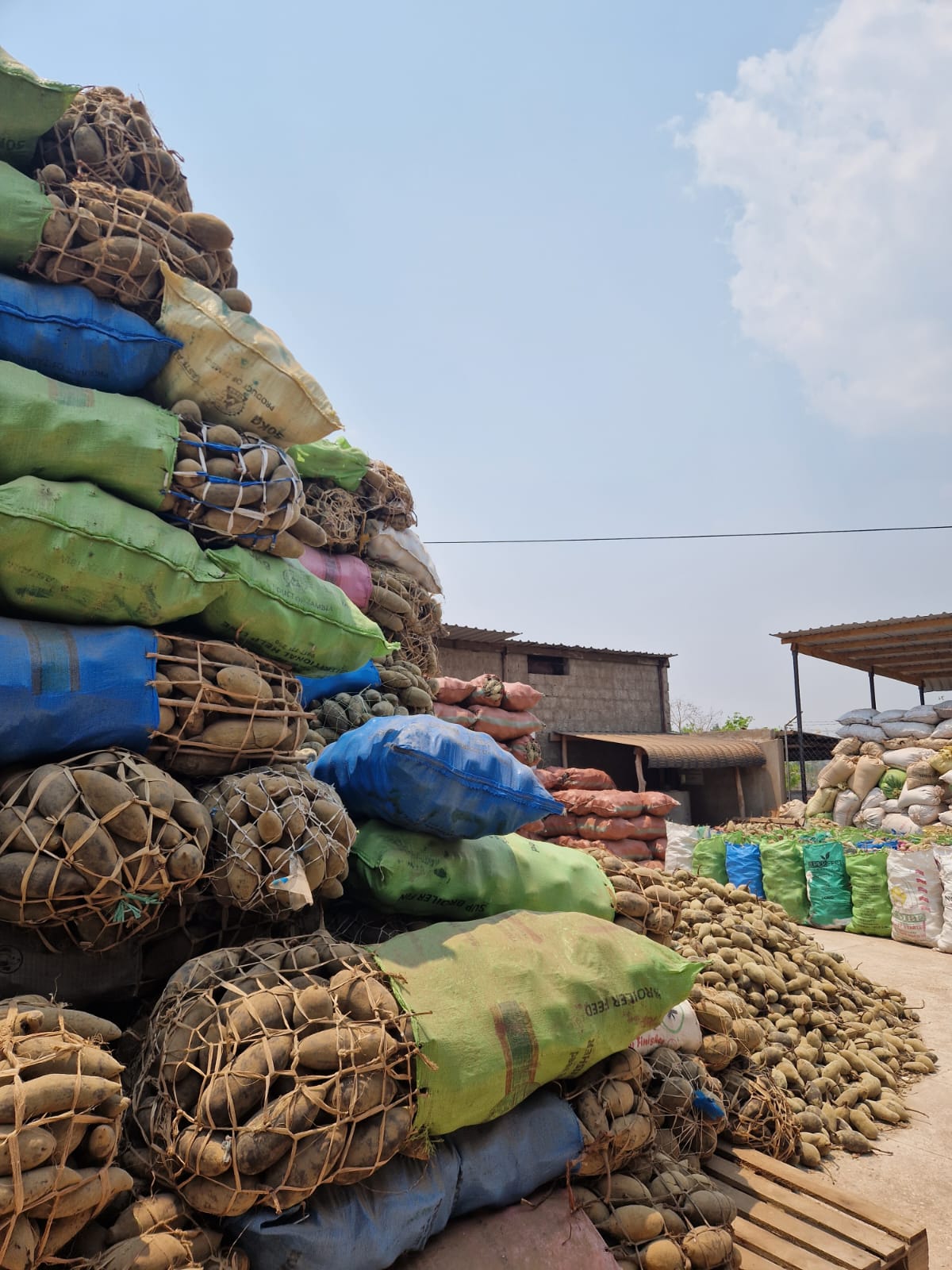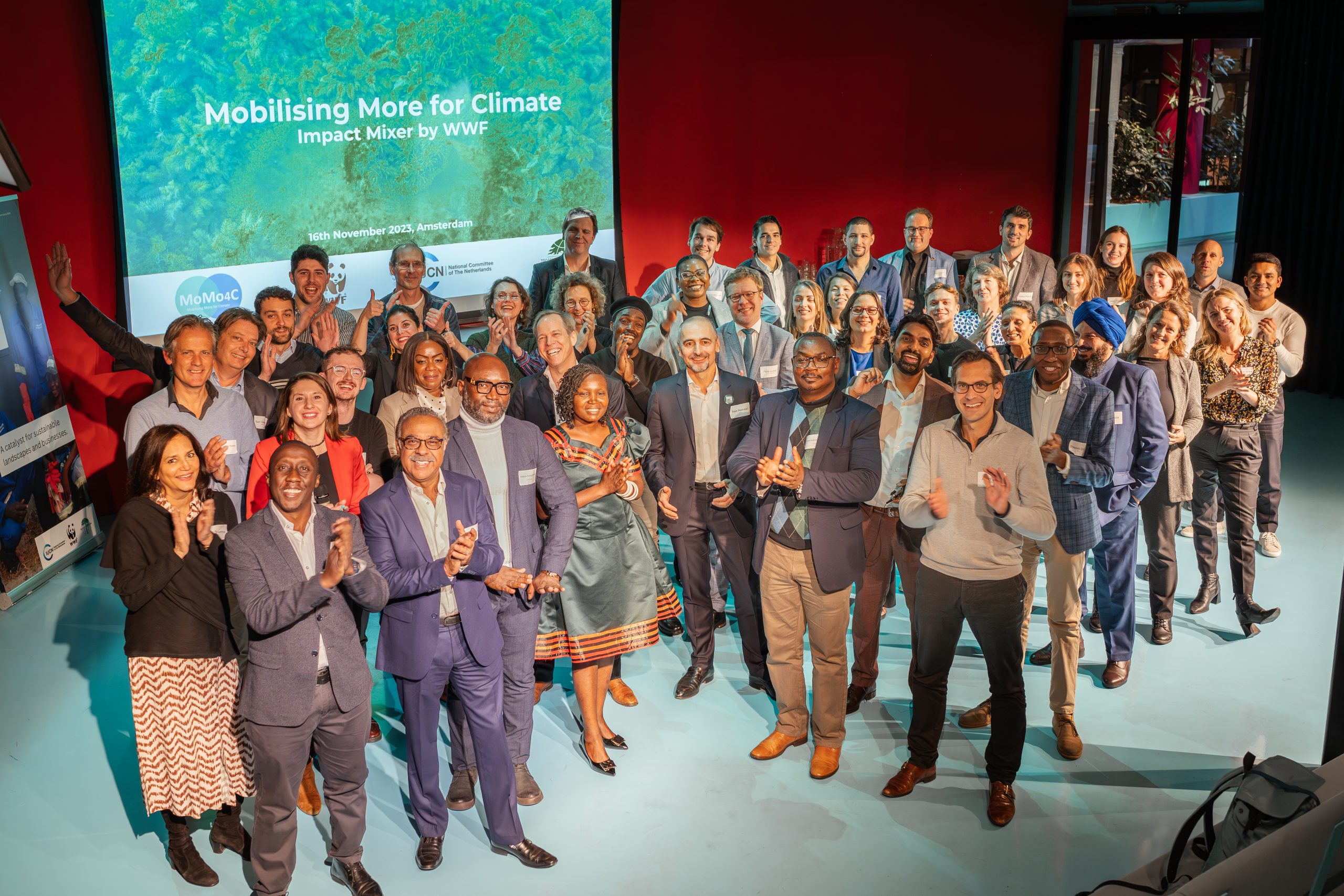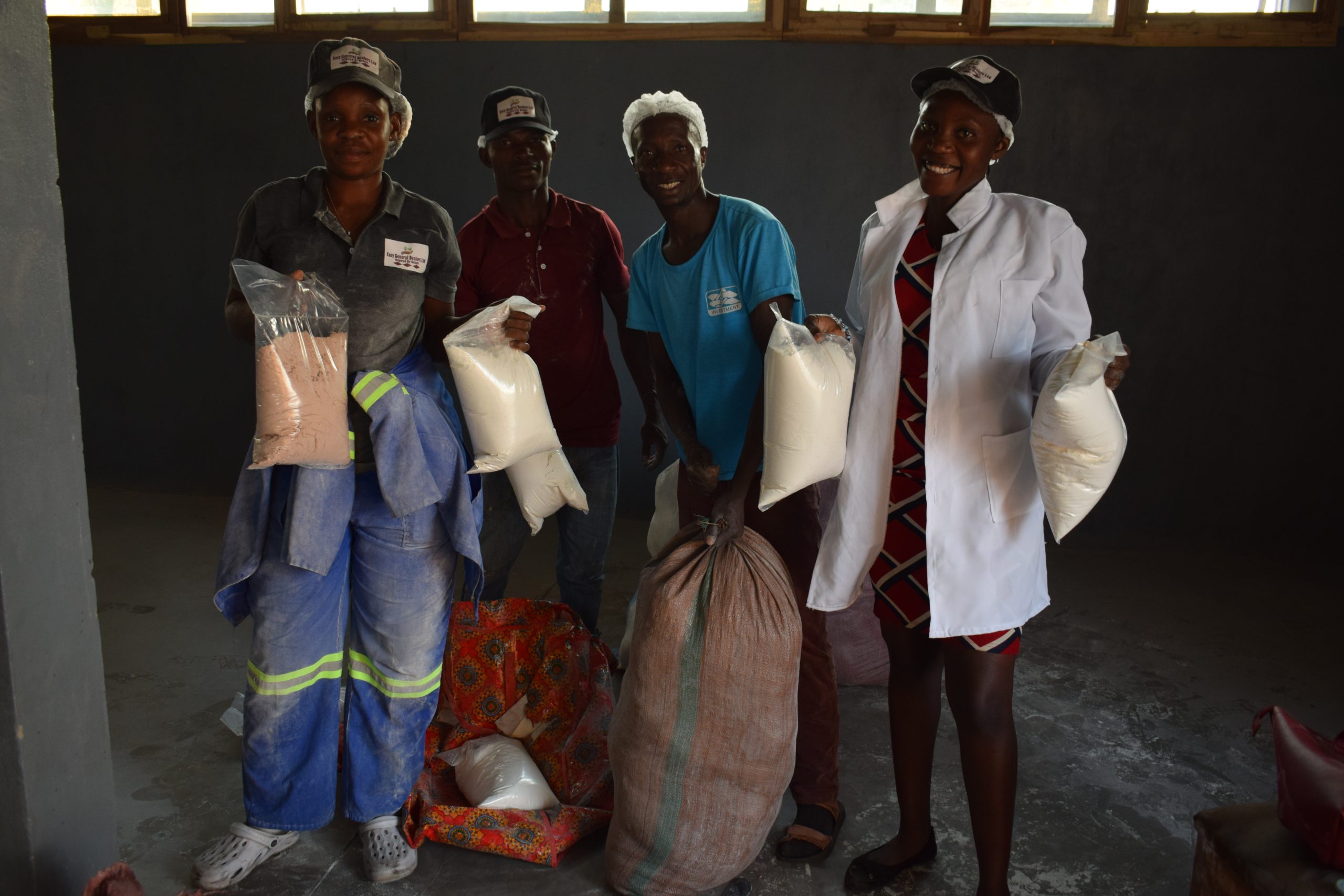Guardians of Nature: How Rural Entrepreneurs are Fighting Climate Change
In the heart of Zambia's Miombo woodlands, along the fertile landscapes of Cameroon, and beyond, small businesses are becoming pivotal players in the global fight against climate change.

This is the mission of Mobilising More for Climate (MoMo4C), a climate finance programme spearheaded by IUCN Netherlands, WWF Netherlands, and Tropenbos International, with funding from the Netherlands Ministry of Foreign Affairs. MoMo4C seeks to harness the power of entrepreneurship to improve livelihoods while tackling the dual crises of climate change and biodiversity loss in lower-middle income countries.
Operating across diverse landscapes in Cameroon, Ghana, Indonesia, Uganda, and Zambia, MoMo4C unites a diverse group of stakeholders, including entrepreneurs, companies, policymakers, investors, and civil society organisations. These collaborations focus on strengthening green business propositions aimed at mitigating climate impacts and fostering sustainable development, with a strong emphasis on nature-based solutions. “MoMo4C aims to support entrepreneurship that helps combat climate change in lower-middle income countries at a landscape level,” explains Mr. Shephard Zonde from WWF’s MoMo4C programme. “We work on the enabling environment, ensuring that gaps for green finance in landscapes are closed. That’s one of the pillars.“
However, securing sufficient investment for these early-stage companies is a significant challenge. “One of the key challenges MoMo4C faces is the size of the investment required by these early-stage companies, which are often considered too small by larger financial institutions or impact investors,” Zonde notes. To overcome this, MoMo4C provides critical technical assistance, helping businesses prepare compelling pitch decks and facilitating introductions to potential investors. This support is crucial in bridging the gap between nascent green enterprises and the markets and investment they need to scale.
Green Entrepreneurship: A Dual Benefit Approach
Central to MoMo4C’s strategy is the identification and provision of technical assistance to small and medium enterprises (SMEs) that contribute to climate adaptation and mitigation while creating jobs and enhancing livelihoods. According to Zonde: “These companies and entrepreneurs create employment for people, which is why it’s important to support them.” This approach not only addresses environmental challenges but also promotes socio-economic development, making it a comprehensive strategy for sustainability.
Strategic Selection and Support for Green Businesses
MoMo4C is meticulous in selecting businesses to support, prioritising those that demonstrate commercial viability, positive impacts on nature and biodiversity, and contributions to food security and livelihoods. The programme focuses on sectors such as agri-food, water and sanitation, and forestry, recognising their potential for sustainable development. While operating in remote and underdeveloped landscapes presents unique challenges for commercial activities, these areas are often biodiversity hotspots, making them critical for protection. “We are there to protect the forests. We are there to protect biodiversity,” emphasises Zonde, highlighting the programme’s unwavering commitment to support sustainable economic development.
In Cameroon, MoMo4C is impacting the community through its collaboration with SOCOCAM, a cooperative of over 100 cocoa farmers spread over the edges of the Tri-National Dja-Odzala-Minkébé (TRIDOM) transborder forest. TRIDOM is a significant part of the Congo Basin, one of the world’s most important carbon sinks. By facilitating an offtake agreement with Crafting Markets, a Dutch specialty cocoa trader, MoMo4C has enabled these farmers to potentially earn a premium price for their sustainable, deforestation-free cocoa. This partnership will not only improve the livelihoods of the cooperative members, including a significant percentage of women, but also promotes sustainable land use practices that are vital for global climate stability.
Similarly, in Zambia, MoMo4C’s support for businesses like Wild Hive & Co. highlighting how green businesses can act as stewards of nature. By purchasing honey from local communities, Wild Hive & Co. incentivises the protection of the Miombo woodlands, as local people have a vested interest in preserving the trees that support their beehives. “The more we can connect these products to new markets, the more we encourage forest conservation,” says Zonde. This model demonstrates how economic incentives can align with environmental conservation, creating a virtuous cycle that benefits both the local communities and the global ecosystem.

Building Collaborative Partnerships for a Sustainable Future
MoMo4C’s success is built on strong partnerships with various stakeholders, including entrepreneurs, investors, and policy makers. These partnerships are facilitated through many ways, including multi-stakeholder platforms that identify and address local climatic challenges. For instance, in Zambia’s Kafue Flats, MoMo4C acts as an advisor to such a platform, which includes multiple private and public stakeholders e.g., sugarcane plantations, breweries, and local communities, all of whom depend on the region’s water resources. By bringing these diverse actors together, MoMo4C fosters a shared understanding of environmental risks and collaborative solutions.
Looking Ahead: Securing the Future of Green Entrepreneurship
As MoMo4C enters its next phase, the programme’s focus intensifies on securing investments for the green business ventures it supports. Although off-take agreements with companies like Crafting Markets are already operational, attracting further private sector finance remains a critical priority. “The investment piece is crucial for sustaining these initiatives,” emphasises Zonde.
Addressing the members of the Netherlands-African Business Council (NABC) and the broader community, Zonde issues a call to action: “We seek Dutch companies interested in exploring new sourcing regions for high quality agro commodities (ranging from deforest free to organic) or partnering with SMEs in the global south, and Dutch banks and investors looking to provide impact financial investment.” He highlights how such linkages can significantly impact the programme’s success.

Zonde underscores the vital role of the private sector in this effort, noting that private investments are essential for scaling up climate solutions, especially in underdeveloped countries. “The private sector’s role is crucial in closing the financial gap that public funding cannot fully address,” he asserts. This sentiment is echoed in research indicating that private sector engagement brings not only the necessary funding but also valuable expertise and innovation, accelerating the implementation of sustainable practices.
MoMo4C exemplifies the transformative potential of entrepreneurship when aligned with environmental stewardship. By supporting small businesses that protect biodiversity and enhance livelihoods, the programme is not merely fostering economic growth; it is nurturing the guardians of our planet’s future. This holistic approach ensures that the fight against climate change is both effective and inclusive, providing a blueprint for sustainable development that other regions and initiatives can follow.


